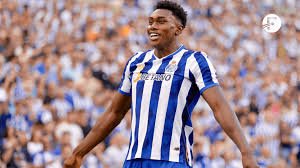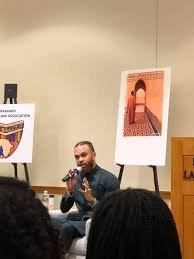Omorodion A Name Rooted in Heritage

The name Omorodion carries a powerful cultural weight, especially among the Edo-speaking people of southern Nigeria. It is more than just a personal or family name—it is a representation of identity, lineage, and tradition. In many African societies, names are deeply symbolic. They carry stories, history, and expectations passed down through generations. Omorodion is one of those names that speaks volumes, even before a word is said.
At its core, Omorodion is typically translated to mean “child of Odion” or “child of the elder.” The prefix “Omo” means “child” in many Nigerian languages, while “Odion” refers to the eldest in the family or community. This implies a strong connection to ancestry, seniority, and responsibility. Being named Omorodion often signals that the bearer is part of a lineage that honors leadership, wisdom, and continuity.
Table of Contents
The Historical Roots of Omorodion in Edo Society
In traditional Edo culture, which is one of the major ethnic groups in Nigeria, the family unit is central to community life. Within these structures, the name Omorodion has long held a special place. It often denotes someone who belongs to a lineage of firstborns or individuals recognized for their status in the family hierarchy. Firstborn children, especially sons, are typically groomed for leadership and are expected to uphold family customs and maintain unity.
The name Omorodion can be passed down to honor an elder or a significant ancestor. In some families, it is a way to preserve the memory of a late patriarch. This naming tradition keeps the story of that elder alive, allowing new generations to draw strength from the values and wisdom associated with the name.
Modern-Day Usage of Omorodion

While the world around us is changing rapidly, the use of traditional names like Omorodion continues to thrive. In urban Nigerian settings as well as among the Nigerian diaspora, many families proudly name their children Omorodion to reinforce cultural identity. Despite the increasing globalization of modern society, there’s a growing movement to preserve indigenous names and heritage.
Today, Omorodion isn’t just a name tied to tradition—it’s a symbol of resilience and pride. As more Africans embrace their roots, names like Omorodion are no longer seen as outdated or overly ethnic. Instead, they’re celebrated as authentic markers of where a person comes from and what values they embody.
Omorodion and Its Role in Family Legacy
In many Nigerian households, the passing down of names is a sacred act. Omorodion, when given to a child, can signify continuity and purpose. It often comes with unspoken expectations—that the bearer will live up to the ideals of their forebears and preserve the family’s dignity and history.
For many families, this name is reserved for children born into positions of honor or spiritual importance. Sometimes, if a child is believed to be a reincarnation of a deceased elder, the name Omorodion may be used to reflect that spiritual belief. This elevates the child’s role in the family from birth, anchoring them in a spiritual and ancestral legacy that is meant to guide them for life.
Public Figures Bringing Visibility to Omorodion
In recent years, the name Omorodion has gained recognition beyond its cultural roots thanks to public figures bearing it with pride. A prominent example is Samson Omorodion, a professional footballer whose talent has drawn international attention. Through sports, his name has become known not just for athletic excellence but also as a symbol of African heritage and potential.
Every time an athlete, artist, or professional named Omorodion makes headlines, the cultural importance of the name spreads further. These figures become role models, not only for their skills but also for their pride in their identity. They show the world that traditional African names like Omorodion can be part of global success stories.
Omorodion in the African Diaspora

Among African communities abroad—whether in Europe, North America, or elsewhere—names like Omorodion serve as lifelines to cultural identity. Immigrants and their descendants often face pressure to conform to Western norms, including changing or abbreviating traditional names. Yet, more people are choosing to hold onto names like Omorodion, seeing them as essential links to their heritage.
In these diasporic contexts, Omorodion becomes more than just a name—it becomes an educational opportunity. People ask what it means, where it comes from, how to pronounce it. Each question is a chance to share a piece of African culture and to assert the value of one’s background.
Challenges of Carrying the Name Omorodion
Despite its rich meaning, Omorodion is not always easy to carry in unfamiliar environments. People with the name often face challenges such as frequent mispronunciations, misspellings, or even subtle biases. These challenges can be frustrating, especially in multicultural settings where unique names are sometimes misunderstood.
However, many individuals choose to embrace these moments as opportunities to educate others. By correcting pronunciations or explaining the significance of their name, they contribute to a growing awareness of African cultures. The name Omorodion, when worn proudly, becomes a symbol of both cultural education and self-empowerment.
Omorodion as a Linguistic Structure
From a linguistic perspective, Omorodion is beautifully constructed. African names often consist of meaningful components that form a complete phrase. In this case, “Omo” (child) and “Odion” (elder or firstborn) come together to convey a full message. This method of naming reflects a tradition where language and meaning are deeply intertwined.
Such names are not random. They tell stories, signal social status, and express family values. This is one of the reasons why names like Omorodion are so important—they’re not only identifiers but also condensed narratives of one’s identity.
Why Omorodion Still Matters Today
In a world that often encourages conformity, traditional names like Omorodion are acts of resistance and pride. They remind us that our roots matter, our histories matter, and that names can carry generations of meaning. Omorodion is not just a name—it’s a statement. It says, “I belong to a lineage. I am proud of my origin. I carry a legacy.”
Names like Omorodion help preserve African identity, especially in a globalized era where cultural uniqueness can sometimes be diluted. They ensure that even as we move forward, we never forget where we came from.
Also read Rayan Cherki Football’s Creative Prodigy
Conclusion: The Enduring Power of Omorodion
The name Omorodion is a powerful thread connecting generations, cultures, and continents. It is rooted in the values of respect, leadership, and heritage. From its origins in Edo culture to its use in modern global society, the name has remained relevant, meaningful, and impactful.
As more people seek to reconnect with their roots and honor their identities, names like Omorodion are being embraced more than ever. Whether you’re a bearer of the name, part of a family that carries it, or simply curious about its meaning, one thing is clear: Omorodion is a name that tells a story—and it’s a story worth telling.



